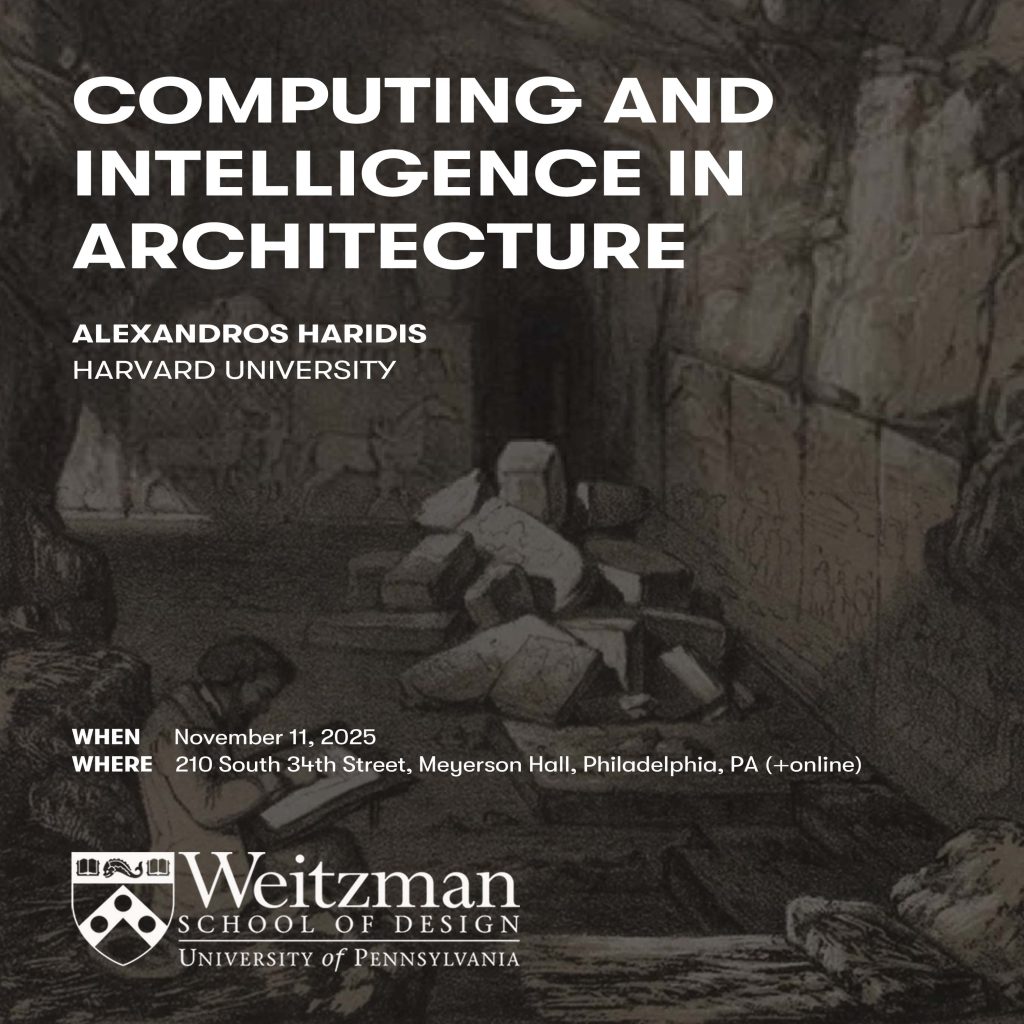
News
Talk – UPenn School of Design
November 11, 2025
I gave an invited talk at the University of Pennsylvania’s Stuart Weitzman School of Design with the title “Computing and Intelligence in Architecture: Encoding Design Knowledge.” The host of the talk was Nathan King for the Master of Science in Design: Robotics and Autonomous Systems (MSD-RAS) program at UPenn.
Abstract
At the 1956 Dartmouth Summer Research Project — one of the first formal AI gatherings — “creation” and “evaluation,” the capacities behind scientific breakthroughs and creative work in architecture and the arts, were identified as one of seven key aspects of human intelligence for AI to address. Today, nearly seven decades later, creation and evaluation systems in AI are fueling debates over whether computers can surpass human creativity and raise ethical questions about originality, genius, and copyright. In this talk, I argue that this moment presents an opportunity to unpack computing and intelligence in architecture by examining how design knowledge and expertise have traditionally been collected, recorded, and communicated. I will present recent work that explores what it means for a computational system to make judgements about the design of architecture’s products – by extracting insights from recorded design knowledge – and further probes the nature of aesthetic value judgement, a specialized faculty for discerning and judging central to the study and practice of architecture.
Related Work
See the ACM Conference article: “JONES-19: A Cultural Image Dataset Based on The Grammar of Ornament,” which describes the curation of a small-size design collection and captures a few of the topics I covered in this talk, including the use of computing as a method of encoding design knowledge and of extracting insights about a certain class of design objects that are otherwise accessible only to experts. See also the distinction between computing with rules and computing with data.